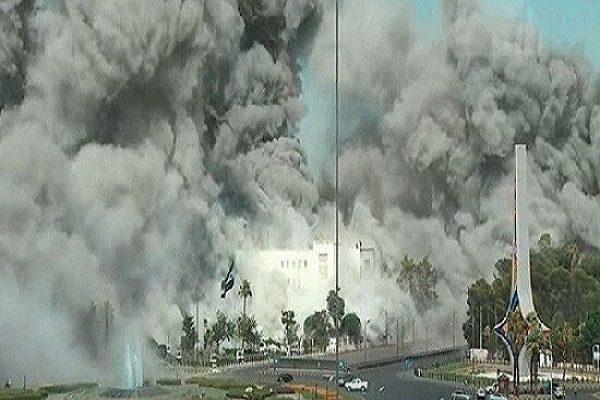Global Condemnation Mounts Over Israeli Strikes in Syria

The strikes, launched on Wednesday, targeted key locations in and around the Syrian capital Damascus, as well as Suwayda in the south. Syrian state media reported that at least three individuals were killed when air raids hit areas near the Ministry of Defense and adjacent palace grounds.
Israel’s military claimed the attacks were aimed at deterring Syrian forces, whom they accused of endangering the Druze minority amid ongoing clashes in Suwayda between local Druze communities and Bedouin factions. These hostilities have escalated since mid-July.
Iran has strongly denounced the latest Israeli military operations in Syria, calling them a continuation of the regime’s “predictable” and brutal conduct. Tehran’s Foreign Minister Abbas Araghchi called for unified regional and global efforts to put an end to what he termed Israel’s unchecked aggression.
“The rabid Israeli regime knows no bounds and only grasps one language. The world, including the region, must unite to end its unhinged aggression," Araghchi wrote on X. He reiterated Iran’s unwavering support for Syria’s sovereignty and territorial integrity and its solidarity with the Syrian people.
Read More:
In recent days, the Israeli regime has launched strikes on various regions of Syria, including the south, under the pretext of defending the Druze in their conflict with the ruling HTS administration in Suwayda province. Since the fall of Bashar al-Assad’s government, sporadic confrontations have occurred between Syrian Druze and factions linked to the HTS.
On one side, ethnic and religious minorities fear the authoritarian and extremist behavior of groups under the new rule led by the hardline militant organization HTS. On the other, the Israeli regime’s repeated assaults on Syrian military capabilities and its support for ethnic and sectarian minorities seem aimed at fragmenting Syria into weak, divided states.
International criticism has been swift. UN Secretary-General António Guterres voiced deep concern over the rising violence and condemned the targeting of civilians.
Russia, through a Kremlin spokesperson, urged all sides to de-escalate, warning that continued aggression could disrupt ongoing diplomatic efforts and violate obligations under the UN Charter.
Lebanon described the attacks as blatant infringements on Syria’s sovereignty and called on the United Nations to uphold Security Council resolutions safeguarding member nations’ territorial integrity.
Turkey also reacted sharply, asserting that Israel’s actions were designed to undermine Syria’s progress toward peace and stability.
Read More:
The Persian Gulf Cooperation Council characterized the strikes as violations of international law and a dangerous provocation.
Meanwhile, Hamas described the aggression as the Israeli regime’s “organized terrorism” and urged international intervention to halt a threat to regional peace.
Yemen’s Ansarullah movement argued the strikes were part of a broader plan to sow division among Arab and Islamic nations while reinforcing Israeli dominance.
Source: Agencies



